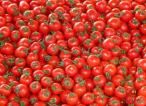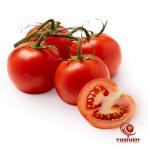Buy tomato paste in egypt types + price
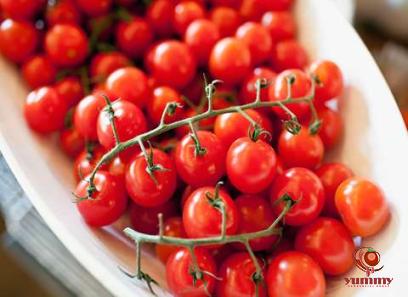
In the heartlands of Egypt, where the Nile River weaves its way through ancient civilizations and fertile farmlands, lies a culinary tradition deeply rooted in the vibrant hues and robust flavors of tomatoes. One of the cornerstone ingredients that embody this tradition is the versatile and essential tomato paste. From family kitchens to bustling markets, the rich essence of tomato paste in Egypt transcends mere culinary significance—it embodies a cultural legacy that has stood the test of time. **The Cultural Significance of Tomato Paste in Egyptian Cuisine** Tomato paste holds a revered position in Egyptian cuisine, where it is not just a condiment or base ingredient, but a symbol of culinary heritage and tradition. Egyptians have long appreciated the deep, savory essence that tomato paste imparts to their dishes, elevating the simplest of recipes to culinary masterpieces. Whether it’s the iconic Ful Medames, a hearty stew of fava beans, or the savory Kushari, a medley of lentils, rice, and pasta, tomato paste infuses these dishes with a rich umami flavor that is unmistakably Egyptian.

.
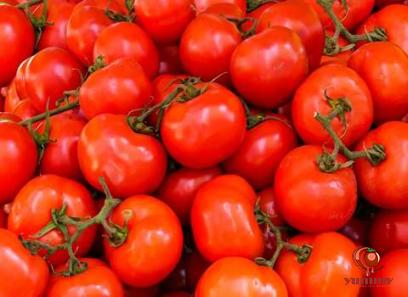 **The Art of Making Tomato Paste in Egypt** While commercial varieties of tomato paste are readily available in stores across Egypt, many families continue to uphold the tradition of making their tomato paste at home. This time-honored practice involves selecting the ripest and juiciest tomatoes, simmering them slowly to concentrate their flavors, and then straining and preserving the resulting paste. The process is labor-intensive but rewards the diligent with a tomato paste of unparalleled richness and depth—a true labor of love that connects generations through shared culinary experiences. **The Agricultural Landscape of Tomato Production in Egypt** Egypt’s favorable climate and fertile soil make it an ideal environment for growing tomatoes, with the country being a significant producer of tomatoes for both local consumption and export. The cultivation of tomatoes for paste production involves meticulous planning and expertise, with farmers employing modern agricultural practices to ensure high yields of quality tomatoes. From the lush fields of the Nile Delta to the sun-drenched plains of Upper Egypt, tomatoes thrive in Egypt’s diverse agroecological regions, providing a steady supply of fresh produce for tomato paste production.
**The Art of Making Tomato Paste in Egypt** While commercial varieties of tomato paste are readily available in stores across Egypt, many families continue to uphold the tradition of making their tomato paste at home. This time-honored practice involves selecting the ripest and juiciest tomatoes, simmering them slowly to concentrate their flavors, and then straining and preserving the resulting paste. The process is labor-intensive but rewards the diligent with a tomato paste of unparalleled richness and depth—a true labor of love that connects generations through shared culinary experiences. **The Agricultural Landscape of Tomato Production in Egypt** Egypt’s favorable climate and fertile soil make it an ideal environment for growing tomatoes, with the country being a significant producer of tomatoes for both local consumption and export. The cultivation of tomatoes for paste production involves meticulous planning and expertise, with farmers employing modern agricultural practices to ensure high yields of quality tomatoes. From the lush fields of the Nile Delta to the sun-drenched plains of Upper Egypt, tomatoes thrive in Egypt’s diverse agroecological regions, providing a steady supply of fresh produce for tomato paste production.
..
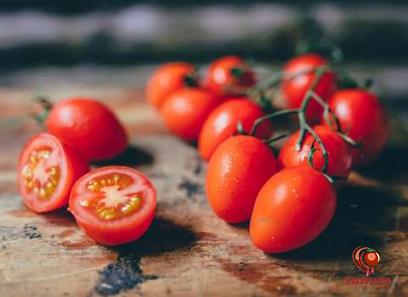 **Varieties of Tomato Paste in the Egyptian Market** In Egypt, tomato paste comes in a myriad of forms, catering to diverse culinary preferences and applications. From concentrated paste in convenient tubes to resealable jars of pureed tomato goodness, the Egyptian market offers a wide array of options for consumers. Whether it’s the intense flavor of double-concentrated paste or the smooth consistency of strained tomato puree, Egyptian brands pride themselves on delivering quality products that capture the essence of fresh, ripe tomatoes. **Nutritional Benefits of Tomato Paste** Beyond its culinary allure, tomato paste is also a nutritional powerhouse, packed with essential vitamins and antioxidants that contribute to overall health and well-being. Tomatoes are rich in lycopene, a potent antioxidant that has been linked to a reduced risk of heart disease and certain types of cancer. Additionally, tomatoes are a good source of vitamins A and C, as well as potassium and fiber, making tomato paste a valuable addition to a balanced diet. **Innovations in Tomato Paste Production Technology** As consumer demand for high-quality and convenient food products grows, the tomato paste industry in Egypt has embraced technological advancements to streamline production processes and ensure product consistency. From state-of-the-art processing facilities to innovative packaging solutions, manufacturers are investing in cutting-edge equipment and techniques to meet the evolving needs of the market. These advancements not only improve product quality and shelf life but also reduce waste and environmental impact, paving the way for a more sustainable future for the tomato paste industry in Egypt. **Tomato Paste in Egyptian Gastronomy** In addition to its traditional uses in staple dishes, tomato paste plays a vital role in the rich tapestry of Egyptian gastronomy, where it is celebrated for its versatility and depth of flavor. From tangy dips and sauces to hearty stews and soups, tomato paste lends its distinctive flavor profile to a wide range of dishes, adding complexity and depth to every bite. Whether it’s the zesty kick of a homemade salsa or the comforting warmth of a simmering tagine, tomato paste is the secret ingredient that ties together the diverse flavors of Egyptian cuisine.
**Varieties of Tomato Paste in the Egyptian Market** In Egypt, tomato paste comes in a myriad of forms, catering to diverse culinary preferences and applications. From concentrated paste in convenient tubes to resealable jars of pureed tomato goodness, the Egyptian market offers a wide array of options for consumers. Whether it’s the intense flavor of double-concentrated paste or the smooth consistency of strained tomato puree, Egyptian brands pride themselves on delivering quality products that capture the essence of fresh, ripe tomatoes. **Nutritional Benefits of Tomato Paste** Beyond its culinary allure, tomato paste is also a nutritional powerhouse, packed with essential vitamins and antioxidants that contribute to overall health and well-being. Tomatoes are rich in lycopene, a potent antioxidant that has been linked to a reduced risk of heart disease and certain types of cancer. Additionally, tomatoes are a good source of vitamins A and C, as well as potassium and fiber, making tomato paste a valuable addition to a balanced diet. **Innovations in Tomato Paste Production Technology** As consumer demand for high-quality and convenient food products grows, the tomato paste industry in Egypt has embraced technological advancements to streamline production processes and ensure product consistency. From state-of-the-art processing facilities to innovative packaging solutions, manufacturers are investing in cutting-edge equipment and techniques to meet the evolving needs of the market. These advancements not only improve product quality and shelf life but also reduce waste and environmental impact, paving the way for a more sustainable future for the tomato paste industry in Egypt. **Tomato Paste in Egyptian Gastronomy** In addition to its traditional uses in staple dishes, tomato paste plays a vital role in the rich tapestry of Egyptian gastronomy, where it is celebrated for its versatility and depth of flavor. From tangy dips and sauces to hearty stews and soups, tomato paste lends its distinctive flavor profile to a wide range of dishes, adding complexity and depth to every bite. Whether it’s the zesty kick of a homemade salsa or the comforting warmth of a simmering tagine, tomato paste is the secret ingredient that ties together the diverse flavors of Egyptian cuisine.
…
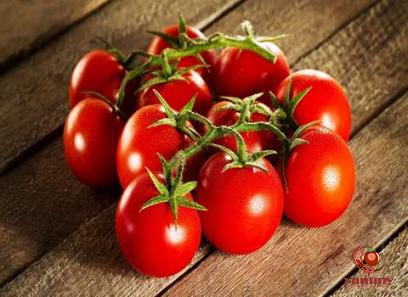 **The Future of Tomato Paste in Egypt** As Egypt’s culinary landscape continues to evolve and adapt to changing consumer preferences, tomato paste remains a steadfast symbol of tradition and innovation. With a commitment to quality, sustainability, and culinary excellence, the tomato paste industry in Egypt is poised to thrive in the years to come, offering consumers a taste of the country’s rich gastronomic heritage in every bite. **Conclusion** In conclusion, tomato paste in Egypt is not just a condiment or ingredient—it is a cultural cornerstone that embodies the essence of Egyptian cuisine and tradition. From the sun-kissed fields where tomatoes grow to the bustling markets where paste is bought and sold, the legacy of tomato paste in Egypt is a testament to the country’s rich culinary heritage. Whether enjoyed in a simple home-cooked meal or savored in a gourmet dish, tomato paste in Egypt is a symbol of connection, community, and shared culinary experiences that transcend time and place. **Sustainability and Quality Assurance in Tomato Paste Production** In recent years, there has been a growing emphasis on sustainability and quality assurance in the tomato paste industry in Egypt. Producers are implementing practices that prioritize environmental conservation, such as water-efficient irrigation systems and organic farming methods. By reducing water usage and minimizing the use of synthetic pesticides, producers are not only safeguarding the environment but also ensuring the long-term viability of tomato cultivation in Egypt. Quality assurance measures have also become increasingly important, with stringent production standards and certifications ensuring that consumers receive safe and high-quality tomato paste products. From farm to factory, every step of the production process is closely monitored to guarantee the freshness, flavor, and nutritional value of the final product. By adhering to these rigorous standards, Egyptian producers are able to meet the demands of discerning consumers both locally and internationally.
**The Future of Tomato Paste in Egypt** As Egypt’s culinary landscape continues to evolve and adapt to changing consumer preferences, tomato paste remains a steadfast symbol of tradition and innovation. With a commitment to quality, sustainability, and culinary excellence, the tomato paste industry in Egypt is poised to thrive in the years to come, offering consumers a taste of the country’s rich gastronomic heritage in every bite. **Conclusion** In conclusion, tomato paste in Egypt is not just a condiment or ingredient—it is a cultural cornerstone that embodies the essence of Egyptian cuisine and tradition. From the sun-kissed fields where tomatoes grow to the bustling markets where paste is bought and sold, the legacy of tomato paste in Egypt is a testament to the country’s rich culinary heritage. Whether enjoyed in a simple home-cooked meal or savored in a gourmet dish, tomato paste in Egypt is a symbol of connection, community, and shared culinary experiences that transcend time and place. **Sustainability and Quality Assurance in Tomato Paste Production** In recent years, there has been a growing emphasis on sustainability and quality assurance in the tomato paste industry in Egypt. Producers are implementing practices that prioritize environmental conservation, such as water-efficient irrigation systems and organic farming methods. By reducing water usage and minimizing the use of synthetic pesticides, producers are not only safeguarding the environment but also ensuring the long-term viability of tomato cultivation in Egypt. Quality assurance measures have also become increasingly important, with stringent production standards and certifications ensuring that consumers receive safe and high-quality tomato paste products. From farm to factory, every step of the production process is closely monitored to guarantee the freshness, flavor, and nutritional value of the final product. By adhering to these rigorous standards, Egyptian producers are able to meet the demands of discerning consumers both locally and internationally.


 Phone number:
Phone number:  WhatsApp Response:
WhatsApp Response:




